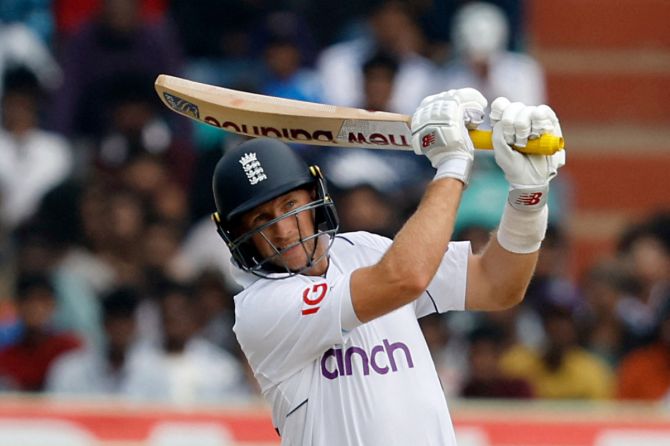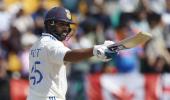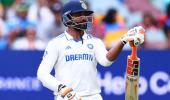'Greatness isn't just about what they achieve in their prime. It's about how they adapt, endure, and finish.'
'Kohli, Smith, and Root are writing the final chapters of their stories, and we should honour their courage as much as their brilliance.'

Batting legend Greg Chappell, whose tenure as coach of the Indian cricket team in the early 2000s was nothing short of contentious, has offered profound insights into the twilight struggles of cricket's modern greats.
In a thought-provoking column for The Sydney Morning Herald newspaper, Chappell explored the phenomenon he calls 'Elite Performance Decline Syndrome' (EPDS) and its impact on the careers of players like Virat Kohli, Steve Smith and Joe Root.
Chappell's observations are a poignant reflection on the inevitability of decline in elite athletes, particularly batters who once stood unchallenged.
'For players like Kohli, Smith, and Root, the end will come -- not when others tell them, but when they know,' Chappell writes.
Unlike a dramatic fall from grace, Chappell describes the decline of these icons as a subtle shift.
'It's not dramatic,' he explains. 'It's subtle -- a shift in approach, a caution that replaces the instinctive dominance of their prime.'
Kohli, once renowned for his commanding starts and relentless aggression, now takes longer to settle into his innings.
'He now builds his innings differently, often needing 20 or 30 runs to regain the fluency that once came naturally,' Chappell notes.
The hesitancy, he argues, signifies EPDS, where confidence erodes under the weight of expectations and fear of failure.
'Confidence is everything for an elite athlete,' Chappell writes.
'When doubt creeps in, it disrupts the clarity required to dominate. Kohli's internal battle is clear -- his desire to attack versus his cautious approach to survival.'
For Steve Smith, whose unorthodox brilliance redefined batting, the decline has been more psychological than physical.
'Smith's decline has been more mental than physical,' Chappell observes, citing the relentless fatigue of maintaining razor-sharp focus and meticulous preparation.
'Fatigue both mental and physical is a silent enemy,' he writes.

Joe Root's graceful stroke play and adaptability, hallmarks of his career, have not been immune to the creeping effects of EPDS. Chappell notes a subtle shift in Root's intent, where risk-taking has diminished.
'Root's ability to dominate spinners and pace alike is still there, but his willingness to take risks has diminished,' he says.
Chappell delves into the physiological and psychological underpinnings of EPDS, explaining how ageing impacts the mind and body of athletes.
'These changes are inevitable,' he writes. 'The challenge is how players like Kohli, Smith, and Root adapt to them.'
For cricketers from nations like India, Australia, and England, public scrutiny intensifies these pressures.
'These players are not just fighting their own battles,' Chappell notes. 'They're carrying the weight of millions of fans who demand perfection.'
Chappell recalls Sunil Gavaskar's words: 'The hardest part of batting is knowing you aren't what you were.'
Despite the challenges, Chappell acknowledges the resilience of these players. Kohli has recently rediscovered his rhythm after cautious starts, while Smith continues to grind out tough conditions, and Root's adaptability across formats remains a hallmark of his game.
'Reaching 20 or 30 runs acts as a psychological turning point,' Chappell writes.
'It's a moment where the rhythm of their younger selves resurfaces, reminding them -- and us -- why they're among the greatest of all time.'
Reflecting on his own career, Chappell recalls the emotional struggle of letting go, citing his final Test century at the SCG as a moment of defiant brilliance. He calls on fans to celebrate these players not just for their prime but for their ability to adapt and endure.
'Greatness isn't just about what they achieve in their prime. It's about how they adapt, endure, and finish. Kohli, Smith, and Root are writing the final chapters of their stories, and we should honour their courage as much as their brilliance.'











